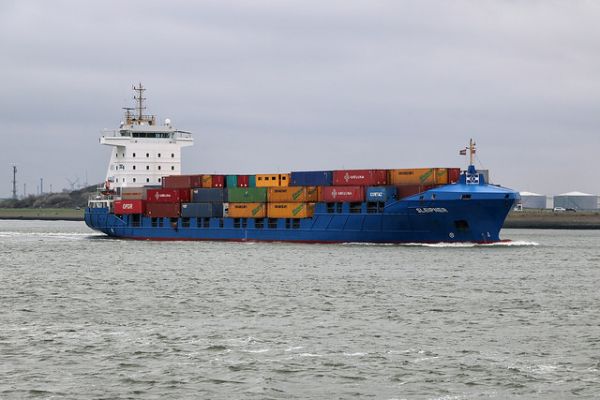Never
mind a cruise ship. Those are like floating 5-star hotels. A more
offbeat approach to sea travel is to book passage on a freighter. This
is called “container ship tourism.” Most large freighters have cabin
space for a few passengers. For a few thousand dollars, you can book a
month-long journey across the ocean. Andy Wright of Atlas Obscura has a fascinating article
about this very old yet largely unknown form of travel. He talked to
Julie Richards, a travel agent who specializes in this field:
Ships
departing Australia often make their way to Asia, the United States or
Europe. Ships sailing from the west coast of the United States head to
China or Hong Kong, while those from the East Coast or Savannah
frequently sail to Europe. Trips may last just a few days, although some
travelers sign on for 60 days or even around-the-world journeys. Meals
are provided, rooms are cleaned once a week and passengers do their own
laundry. Once in port, travelers can go ashore to explore; it’s their
own responsibility to make it back to the ship in time for departure.
Richards says most of her clients are single men, and the typical cost
is about $120 a day.
You’ll
probably get a reasonably comfortable cabin. But you’ll have to
entertain yourself. A container ship offers nothing like the cruise ship
experience. And according to freighter travel enthusiast Robert
Rieffel, the food varies widely:
Passengers dine with
the officers, and the cuisine is often dictated by the officers’ country
of origin. Every day the Rieffels were offered a traditional European
breakfast of sliced cheese, hard bread, butter and marmalade favored by
the mostly Ukrainian officers. There was juice and coffee, eggs and
bacon. One day, Rieffel writes in his book, dinner consisted of “salad,
soup, beef tips in gravy, potatoes, green beans, a potato salad with
calamari, cheese, cold cuts, bread, butter, wine cake and coffee.”
Spittler’s German and European officers had a proclivity for hearty
meals like pot roast. Alcohol, candy bars and other treats can usually
be procured from duty-free shops. Spittler stocked up on Bacardi rum and
Teacher’s scotch, parlaying his leftovers into a party for the crew
towards the end of his voyage.



No comments:
Post a Comment